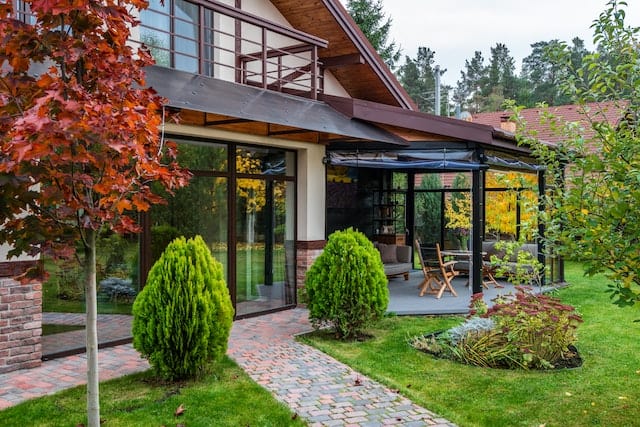
Schedule a FREE Water Test Today!
When it comes to filtration, we have solutions for almost any problem. Treat and filter your water for iron, sediment, fluoride and harmful bacteria.
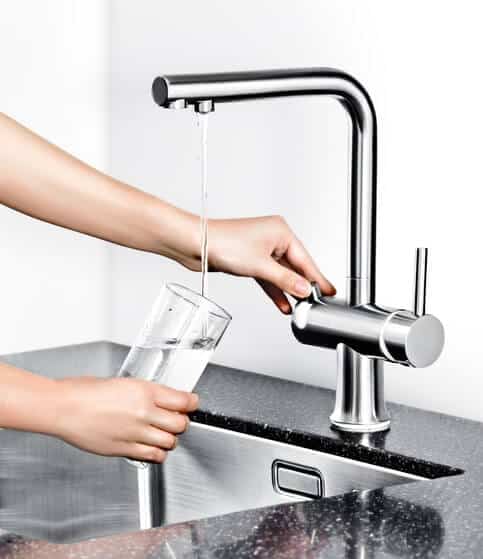
*Savings on select systems only.
Restrictions may apply. See dealer for details.
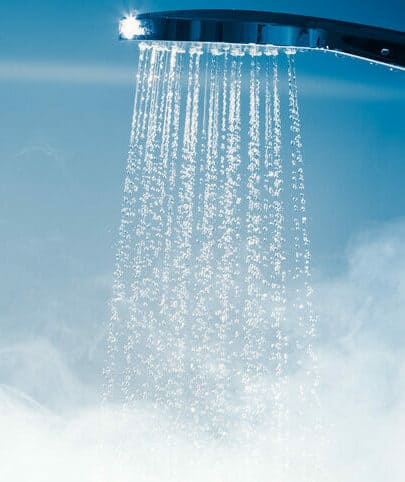
Save up to $250 * on UV Purifiers & Filtration
UV light water purification and filtration systems help remove contaminants, so you’ll enjoy healthy, great tasting water throughout your home.

*Savings on select systems only.
Restrictions may apply. See dealer for details.

Save up to $350 * on Water Softeners
A new water softener can make a big difference. Cleaner hair, spot-free dishes, and no more scaly deposits so your appliances work better and last longer.
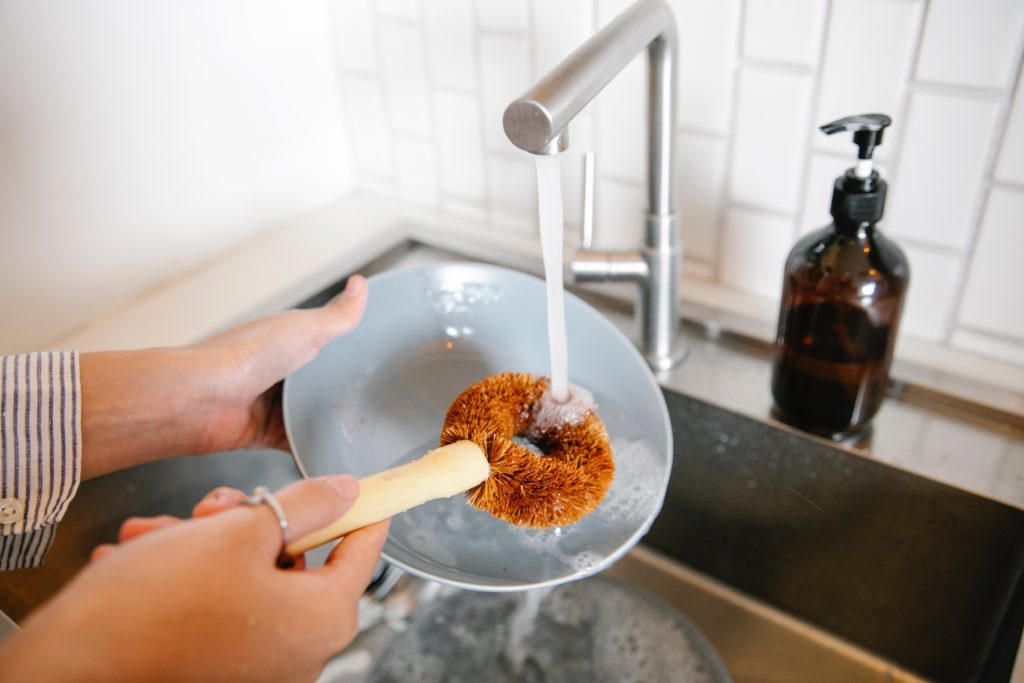
*Savings on select systems only.
Restrictions may apply. See dealer for details.

There is nothing more essential to our health than clean water. After all, we need it to drink, cook food and clean. However, just because your city says your water is safe for consumption doesn’t mean it won’t cause long-term damage to your health or your home. For these reasons, many homeowners have chosen to get a water treatment system installed.
Check out our guide to learn about whether your home needs a water treatment system and how to choose the right one.
How Do You Know You Need a Water Treatment System?
If you notice any of the following, you may benefit from choosing a water treatment system for your home.
- Your water isn’t clear: Lack of clarity is perhaps the easiest way to tell your water is contaminated. Pure water is completely clear, not cloudy.
- Your water smells strange: If your water smells like metal, chlorine, rotten eggs or something else unusual, consider installing a filter to remove the contaminants causing the smell.
- Your water tastes strange: Pure water shouldn’t taste particularly strong.
- Your family members are often sick: Some contaminants found in tap water can make people sick over long periods of exposure. These harmful contaminants often have no taste.
- There is limescale buildup on your plumbing: This accumulation is often a sign of hard water.
- Your clothes or dishes have stains: Contaminants like iron, sulfur and manganese can stain anything they come in contact with.
- Your water dries out your hair and skin: Chlorine and hardness minerals are two common contaminants in tap water that can dry out skin and hair. If your skin or hair is suffering from dryness, your water could be causing it.
- Your house frequently has plumbing issues: Low pH levels and hard water can damage your plumbing system over time and cause leaks and clogs. If you’re always calling the plumber, getting a water treatment system may be the best solution to your plumbing issues.
- Your water quality report shows contaminants: If you get your water from the city, you will receive a water quality report once a year, which indicates which contaminants your municipality detected in the water when they tested it. If the report shows high levels of specific contaminants, it’s likely these contaminants are in your tap water.
- Your water quality analysis indicated contaminants: Getting a water quality analysis from a professional is the best way to find out if any contaminants are in your water and whether your home could benefit from a water treatment system.

Benefits of Water Treatment Systems
Water treatment systems can improve your water in the following ways.
1. They Remove Contaminants
The primary benefit water treatment systems offer is that they filter out potentially harmful contents in the water, which can include metals, minerals and bacteria. Although many of these things will not likely cause any harm in small doses, they can negatively affect your health over time.
The contents of your water depend mostly on:
- The natural environment
- Your pipes
- Pollution levels in the water table
- Treatment methods
Your water is more likely to contain harmful elements if it comes from a well or other natural water source, as it is untreated and may have picked up contaminants from the local environment. Lead can be a particularly serious issue.
Even if the water you drink has received treatment, it still may contain chlorine and germs, which could cause gastrointestinal issues and even cancer. Although it’s highly unlikely, you should still take these risks seriously, particularly if you have a sensitive stomach or suffer from allergies.
A water treatment system will remove a large number of potentially harmful contaminants in the water you drink.
2. They Are Environmentally Friendly
Americans use 50 billion water bottles every year, but 80% of them end up in landfills. These unrecycled bottles are worth $1 billion of plastic — the equivalent of 17 million barrels of crude oil.
Much of our recycled waste goes to landfills and the Pacific Ocean, and the amount of garbage that has accumulated there is massive. The largest garbage site on the ocean, the Great Pacific Garbage Patch, contains enough plastic to cover the entire state of Texas more than two times. By installing a water treatment system, you can help reduce the amount of plastic waste by filling reusable bottles.
3. They Make the Water Taste Better
Water filters remove contents in the water that make it taste unpleasant, which include chlorine, lead and bacteria. They will also lower the pH levels in your water.
Many people like the taste of filtered water more than that of tap water, including those who like to cook. When you cook with tap water, the taste of the water will affect the taste of your food to some degree. By using filtered water from a water treatment system, your homemade meals will not just have fewer harmful contaminants, but will also taste much better.
4. They Improve the Clarity of Your Water
To many people, the appearance of their drinking water is also essential. Water that passes through a high-quality water treatment system is generally clearer and more attractive.
5. You’ll Save Money in the Long Run
Homes and business that use water for operations save lots of money over time when using a water filtration system. Although the initial costs of a water treatment system can be high, you will recoup the costs through the savings you’ll enjoy over time. In contrast, the expense of purchasing all your water from a water bottling company adds up quickly.
6. You Won’t Experience a Water Shortage
Frozen pipes, floods and earthquakes can interrupt water supplies. But with many types of filtration systems, which process large amounts of water at any time, you can continue to enjoy drinkable water even during water shortages.
7. You Won’t Experience Wastewater Backflow
Wastewater backflow is a severe plumbing issue in many places in the United States, which is yet another good reason to install a reliable water treatment system in your home.
Most homes feature two separate pipe systems: one that carries clean drinking water and one that routes wastewater to the sewer.
When a home experiences backflow, water in the wastewater system that is slowly draining may back up into sinks and tubs. Not only will this cause foul odors, but it could also cause disease. This issue is common in certain places when the soil becomes waterlogged and heavy rain causes slow drainage.
If your drinking water passes through a reliable water treatment system before you drink it, it will minimize the chances of backflow.
Home Water Treatment Services in Elizabethtown, PA & Beyond
If you’re looking for Pennsylvania water treatment for your home, start by asking yourself the following essential questions.
1. How Much Water Does Your Home Use?
The size of a whole-house water filtration system often depends on the maximum amount of water that flows through your home. For instance, there may be a shower, dishwasher and washing machine running simultaneously. Consider how much water will be flowing through your home during times of peak usage. A straightforward way to figure out the needed size is by counting the number of bathrooms and plumbing fixtures in your house.
2. What Types of Water Treatment Systems Are Available?
There are many different types of water treatment systems, but we can classify all of them as either point-of-use (POU) or point-of-entry (POE) systems. We’ll describe each below.
- POU systems: These systems typically get installed at the bathroom or kitchen sink, but can also go under the counter or on the countertop. POU systems can have one-, two- or three-filter housings, and each housing has an individual filter with a half to one-gallon flow rate. POU systems feature a variety of filtration methods, including general water filtration, reverse osmosis and ultraviolet.
- POE systems: POE systems get installed where the primary water line enters your home. Most people call this setup a “whole-house system,” as it treats water for your entire home. Just like with POU systems, POE systems can also have one-, two or three-filter housings, and many methods of water treatment are available. The flow rate can range from five to 20 gallons per minute.
3. What Does a Water Filter System Filter Out?
Whole-house water filter systems can usually remove sediments measuring up to 0.35 microns. Some systems can filter out iron, chlorine and heavy metals, and some even come with water softeners, UV light purifiers and other features to ensure the water is thoroughly purified.
Don’t immediately choose the fanciest system — you may not need it. For instance, you won’t need a filter with a water softener if your water is already soft. Have your water tested to find out what it contains. You can also go to the website of your local supplier and find their annual water quality report.
4. Is my water filter NSF-Certified?
Your water filter should meet the standards of the National Sanitation Foundation or the Water Quality Association. These certifications show the filter has undergone rigorous tests that demonstrate its quality.
However, that doesn’t necessarily mean filters not certified by these organizations are low-quality. The high cost of obtaining these certifications will reflect in the price of the product, and some smaller companies that cannot afford it have their products tested in independent labs. If you see a certification from an unfamiliar lab, do some research — if the lab is reputable, the certification could be meaningful.
5. How Long Will my water Filter Last?
If you’re planning to install a whole-house filtration system, it will be much more time-consuming than a simple installation like a countertop filter. While replacing one of these systems is easier than the installation, it’s a lot of work and may require the help of a professional.
Regardless of who completes the job, replacing a filter involves shutting the water off several times, which can inconvenience your family.
For these reasons, you want to get a whole-house filter that doesn’t need frequent changes. When shopping for a filter, look for ones that last at least six months, although there are filters that can last for many years, which will partially depend on how frequently you use it and the quality of your water.
6. Do You Have Well or City Water And is it safe to drink?
If you get your water from the city, you’re paying for your local treatment system to purify the water and pump it to your home. Although you often hear city water is safe, it often harbors many tasteless contaminants that the EPA does not regulate. Furthermore, governments issue hundreds of “boil water” notices every day around the country, and news stories of city water containing dead animals, traces of illegal drugs, etc. are frequent. To clean up your city water, carbon tanks, reverse osmosis and water softeners are generally good choices. The best water treatment systems for your Pennsylvania home should be able to last 30 years if well-maintained.
If you use well water, the benefit is that your water is most likely free of human-made contamination. However, it also means you will most likely require some variety of water treatment. Since well water comes from the earth, some elements from the ground will likely end up in your water, including iron, radon, sediment, manganese, acid water and hard water. The Centers for Disease Control warn that well water can contain E. coli. A UV water purification system is a good solution to get rid of harmful microorganisms in your well water.
Install a Water Treatment System With Home Climates
If you’re ready to install or replace a water treatment purification system in your home, Home Climates offers the best UV light purification, water softening and water filtration services in Central Pennsylvania. Our Elizabethtown-based company provides heating, cooling and plumbing services to five counties in the area. Fill out our contact form or call 717-689-4151 to schedule a free in-home consultation.
What Type of Water Treatment System Do I Need?
There are three main types of water treatment systems available for indoor residential use. They include:
- Water filters
- Water purifiers
- Water softeners
Each of these systems has its own characteristics and best features, but ultimately, they can work together to create the best effect on your water.
1. Water Filters
Water filters are best recognized for removing the hazardous contaminants that penetrate your underground water. Multiple filters might be used in one unit to produce the best outcome. Taste, color, iron and odor are all elements of your water that can be changed by a water filtration unit.
Chlorine, iron, sulfur and copper are all common contaminants that are removable with a water filter. However, even though they can filter out the toxins to produce clearer water, that doesn’t always mean they create the pure tap water you want. Filters are best used in conjunction with a water purifier.
2. Water Purifiers
A water purifier enhances the job of the filter and goes one step further, removing potential bacteria and preventing the growth of algae and fungi. Purifying technology has evolved to provide three popular systems, including reverse-osmosis, deionization and UV light and distillation. Water purifiers can remove up to 99 percent of bacteria in your water, making it much safer to drink.
3. Water Softeners
Water softeners are great additions to your water systems. If you live in an uncontaminated area, a softener can be the best solution for you — however, living in an area with natural or municipal water might lead you to use a softener treatment as a backup. The purpose of a water softener is to remove the hardness found within tap water, creating clearer water without the harshness of exposed chemicals.
Specializing in Complete Water Treatment Systems Installation – Call Home Climates Today
When you call Home Climates, you can trust that you are in good hands with the best water treatment company in Central PA. Our over-the-top service meets you at a competitive but fair price to ensure your water is the healthiest it can be. If necessary, we can work with you and your budgeting needs to create a financing option that serves your needs in the best way possible. If you’re ready for a water treatment system installation, give us a call.










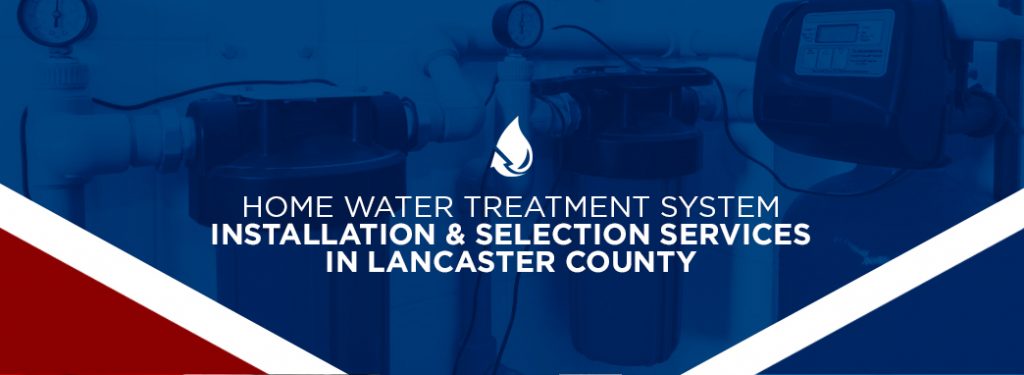
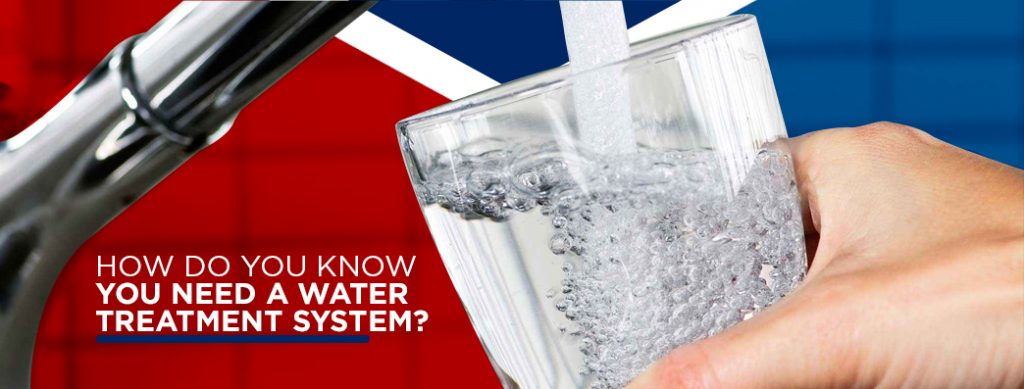
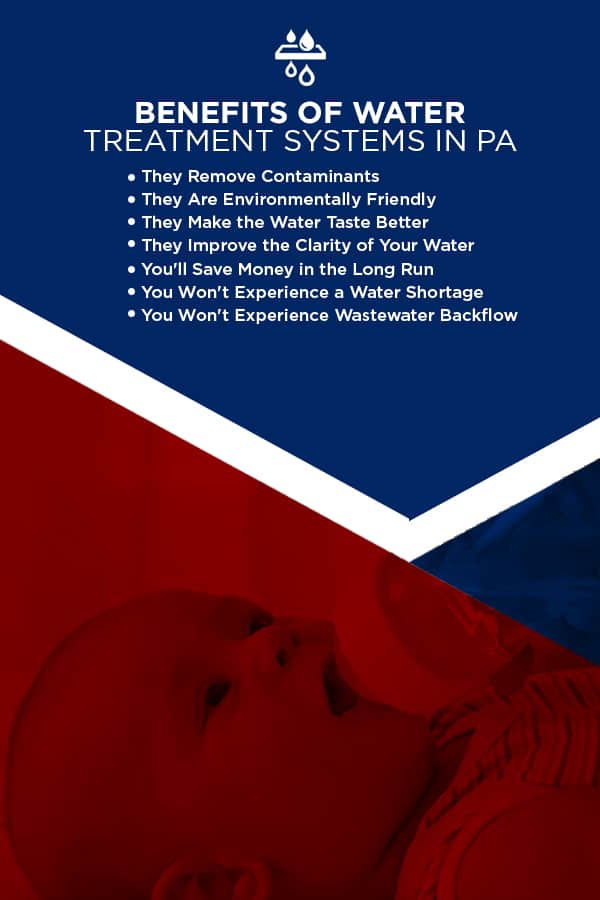
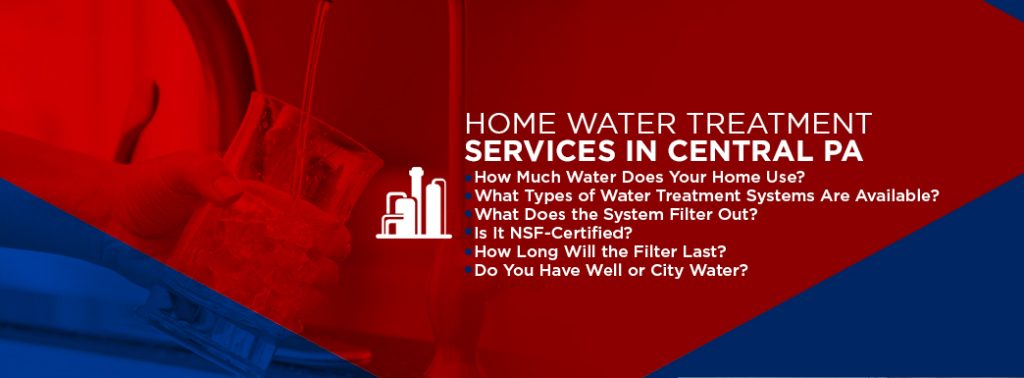
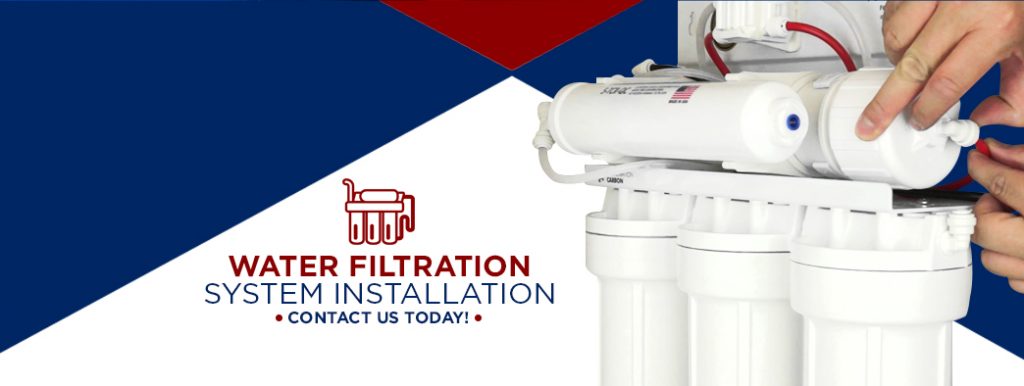





 Reviews
Reviews
